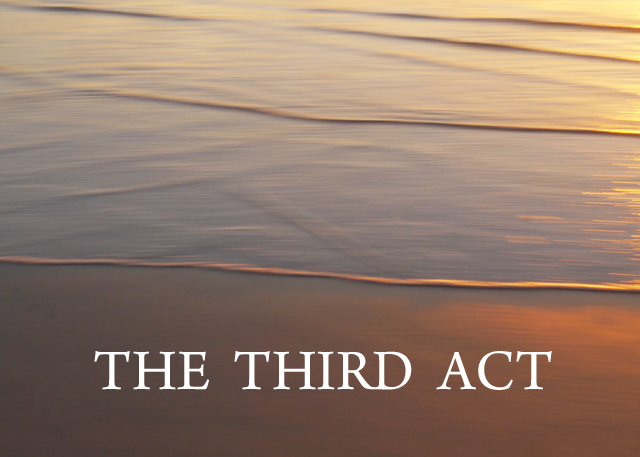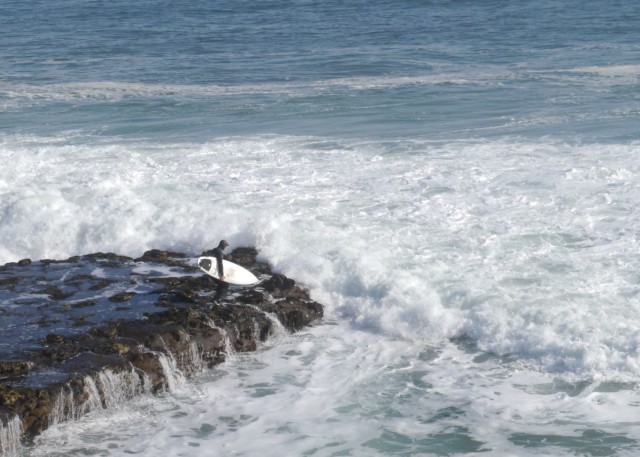
This is the third post in a series on The Third Act, that final third of life often called retirement.
In the first post I talked about the word retirement, and cultural expectations around this time of life. Dr. Mario Martinez, author of the The MindBody Code, has done research with centenarians (people who have lived over the age of 100) and found that these people weren’t just lucky or had good genes. They all shared certain characteristics – resilience, creativity, flexibility, and perseverance.
Centenarians consistently defy cultural expectations around aging.
In the second post, I looked at the importance of practicing resilience in our later years, being able to bounce back from the inevitable challenges and to bounce forward in such a way that we continue to grow. I believe that the three remaining characteristics – creativity, flexibility, and perseverance – can help us maintain resilience.
Creativity – is being able to reframe a potentially negative situation in a brand new way.
Sara Eisenberg (A Life of Practice) calls it “creative inquiry.”
Creativity is (among other things) a way to self-express our unique contribution in this world, a gateway to making meaning, a form of play, a sensual engagement. I stake out creativity as a question, a way of inquiring into the self. Who am I? How do I see myself? What are my yearnings? ~ Sara Eisenberg, A Life of Practice
Creativity can also be cultivated by pursuing artistic forms of expression like writing, painting, or photography. I find that people in their third act often choose to bounce forward in this way.
Oliver Sacks, a neurologist called “the poet laureate of medicine,” died last year at the age of 82 after being diagnosed with cancer. He wrote his last book, On the Move, while being treated for this disease. He inspired me by the way he lived his entire life with creativity – living as a gay man in a time when this was not accepted, writing in an accessible way about his medical experiences, and finding love late in life.
Oliver was interested not just in studying what deficits and impairments his patients had, but also in what gave them joy, resilience and a sense of purpose. He would then ally himself with these sources of strength so they could learn to use their potentially devastating conditions as opportunities for adaptation, renewal, reinvention and growth. ~ Steve Silberton
Sacks reframed everything, even his cancer diagnosis. In this inspiring article from the New York Times about learning he has cancer, Sacks clearly shows how he reframed this news, moving from fear to gratitude.
Flexibility – is considering multiple options when dealing with situations.
In this interview with Maria Shriver, poet Mary Oliver (who is in her 80’s) speaks of the loneliness she felt after the death of her long-time partner. Oliver has always been a very private person, considered a recluse by some. Yet, deep inside she seemed to know that a different response was in order.
I had decided I would do one of two things when she died. I would buy a little cabin in the woods, and go inside with all my books and shut the door. Or I would unlock all the doors—we had always kept them locked; Molly liked that sense of safety—and see who I could meet in the world. And that’s what I did. I haven’t locked the door for five years. I have wonderful new friends. And I have more time to be by myself. It was a very steadfast, loving relationship, but often there is a dominant partner, and I was very quiet for 40 years, just happy doing my work. I’m different now.
Instead of becoming even more reclusive, she reached out to others and is happier than she’s ever been, is becoming more herself, and creating more personal poetry.
Perseverance – is being able to endure the turbulence that inevitably comes, riding it like a wave.

David Suzuki, considered to be Canada’s #1 environmentalist recently turned 80 years old. He still hosts the TV Show, The Nature of Things, now in its 55th season. His story is certainly one of perseverance in advocating for environmental issues his entire life. Suzuki doesn’t necessarily think that anything’s gotten better over that time, either, yet he has no plans to quit speaking out. While his roles as host of a TV show and in his foundation may change, and he spends more time with his grandchildren, his willingness to speak out, no holds barred will not.
I have a certain sense of urgency. I still have ideas and I still wanna get these messages out. I feel this is a really good time — I don’t really give a shit about getting a job or a raise or a promotion. So I’m really free to speak up. I urge other elders: This is the time. This is your time. You gotta talk to young people. ~ David Suzuki, The Vancouver Sun
The Third Act can be a time of opportunity and continued growth, no matter the challenges we face. How will you continue to grow in your third act?
** Books mentioned have Amazon affiliate links, meaning I make a few cents if you purchase through my link. I only recommend books that I’ve read.
All three sections of the The Third Act are helpful, inspiring, and directional. Thank you for these insights, now and in the years to come. I am just now beginning to appreciate how opening your twelve course Once Upon A Time has, is, and will be and how much the course engages the topic of growing older.
Kim as always I come here and find wonderful detail, research and inspiration. Thank you for putting your creativity to work (play?) in this way. How lucky we are to experience this third act and the luxury of freedom……now I will go and delve into the previous posts!
Thank you for all of your insight and sharing as related to this third act of life. I – too – am in the midst of trying to figure out how it is I want to be in this next chapter. Life is a beautiful gift!
I just read your three posts on this topic, Kim, and find them very timely. I am about to turn 70 and have been thinking a lot about aging and how I want to approach my next decade. Retirement has given me the freedom to explore new endeavors and spend more time with photography. It is such a gift! I love having more time to spend with family, as well visiting new places and meeting new people. There is still much to see and learn in our world.
Aging does have its challenges too. There is still too much ageism in our society, and we
can’t let these stereotypes about older folks prevent us from living fully. I also feel strongly that we have an obligation to continue to work to improve our world — there are so many ways to help others and make our communities better. Thank you, Kim, for sharing these ideas and giving us a chance to comment.
Thank you for sharing your experience, Gina. Yes, photography is definitely a gift. And, we must call out ageism, not in the sense that we “act young” but that there is so much we still can do and offer.
So now I’ve taken the time to read all the interesting links you give here, Kim. I loved the little video clip with Sara Eisenberg and how she talks about life being in constant motion and that the only certainty in life is change. I also liked reading about Oliver Sack’s positive and uplifting words after learning he was dying.
I’ve always liked Mary Oliver’s poems and loved how she said she loved walking in the woods because she feels “like she vanishes!” I identified with her ‘walking with a notepad’. I do that too and I have notepads everywhere, even on my bedside table!
Your two photos are so appropriate for the subjects you talk about here!
Thank you for sharing all you do which widens our horizons so well!